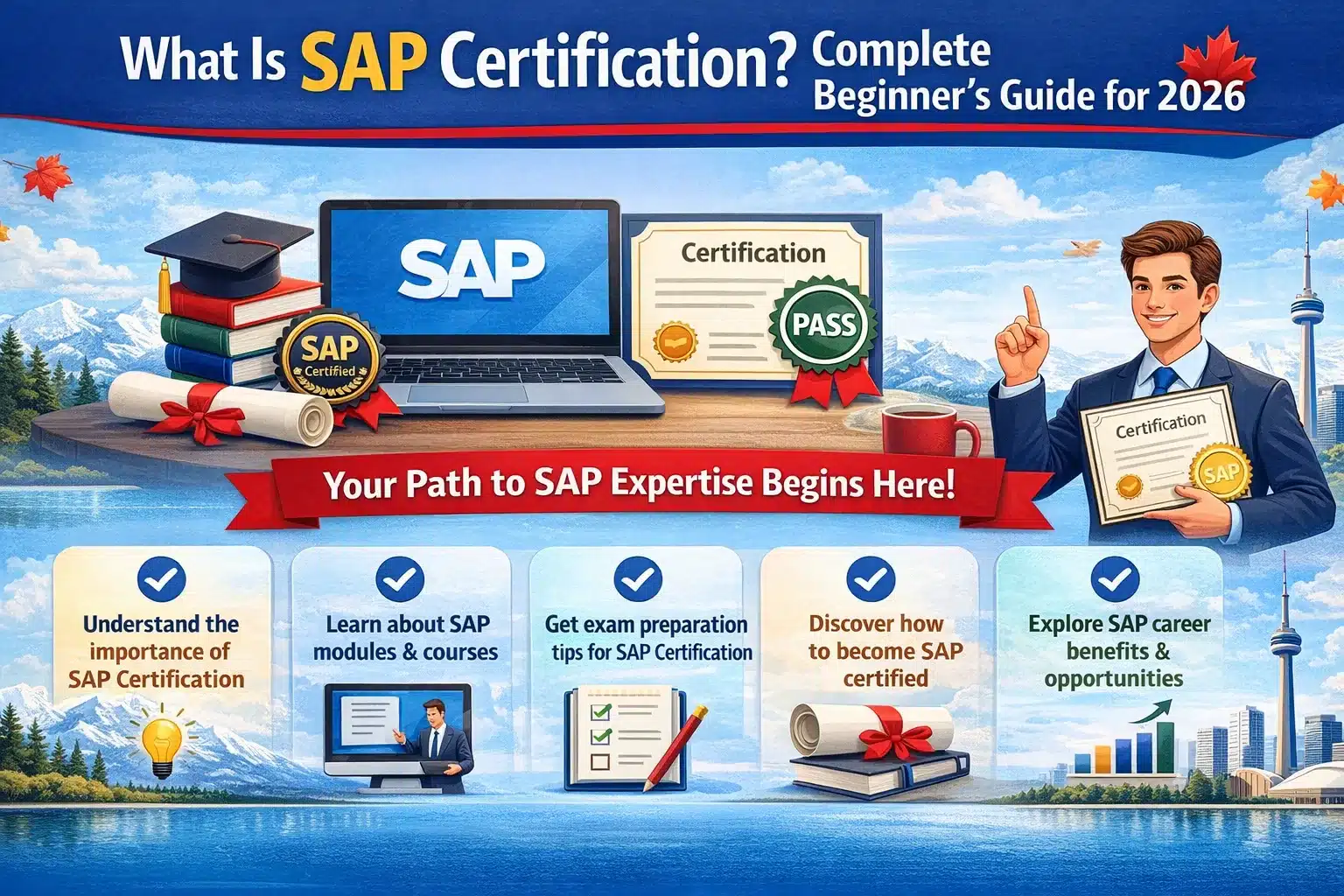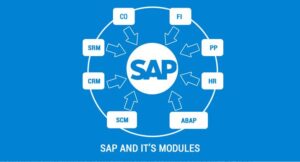Top 10 Common Mistakes SAP Certification Aspirants Make and How to Avoid Them
If you have a SAP certification, then great news! You build a strong career in enterprise resource planning. If you are preparing for any SAP courses like SAP FICO, SAP MM, SAP SD, or SAP HANA, then this journey requires proper planning, concentration, and consistent effort.
There are many aspirants who make many mistakes during preparation, and because of this, they come under stress, poor performance, or even failure. In this blog, we will talk about the top 10 common mistakes in SAP certification aspirants make and how to avoid them.
Some Useful Stats to Know Up Front
Table of Contents
ToggleMentioned below, we provide you with some useful stats:
- The pass rate of aspirants in SAP certification exams is between 60-70 %.
- The pass for specific SAP modules of S/4HANA public cloud is reported as: Finance 52%, SD 54%, sourcing & procurement 64%, EWM 66%.
- In one survey, 72.6% of SAP professionals said they are not certified.
- About 61% of respondents said the SAP certification is very important, but there are less than 39% felt their managers agreed.
As mentioned above, we are clear that these numbers show only two things: first, passing is definitely a challenge, and second, many professionals still don’t have certification, so that means opportunity is still here, but all you do is prepare well.
1. Starting Without a Study Plan
Mistake:
If you jump into SAP preparation without a plan, then it will lead to confusion and incomplete learning. And also, you move from one topic to another without structure.
How to Avoid It:
- Manage your syllabus into smaller and manageable parts.
- Make a study schedule that contains reading, practice, and revision time
- Stick to your plan and adjust only when necessary
2. Ignoring Practical Experience
Mistake:
SAP is not just about learning theory; it is about applying it. Some candidates make mistakes by skipping hands-on practices and concentrating on books or videos.
How to Avoid It:
- Get access to an SAP sandbox or trial version to perform real transactions
- Make practices for business processes prospective, such as purchase orders, billing, or posting entries.
- Also, make sure to join SAP communities where people discuss real project challenges.
3. Memorising Instead of Understanding
Mistake:
Many learns only to memorise every concept without a proper understanding of how it actually works. This also occurs when the exam asks for application-based answers.
How to Avoid It:
- The only main focus is on understanding why each process exists.
- Connect SAP functions with actual business scenarios.
- Use diagrams or flowcharts to properly understand the concept.
4. Neglecting Module Integrations
Mistake:
As you know, each SAP module is interconnected. For example, MM links are connected with FICO, and SD connects with CO. But if you ignore these relationships that it will be very hard to answer cross-functional questions.
How to Avoid It:
- Make sure to always study different modules and how they interact with real workflows.
- Learn examples like how a goods receipt in MM affects accounting entries in FICO
- Watch tutorials on integration for better clarity.
5. Not Practicing Mock Tests
Mistake:
If you only focus on reading material and skipping mock tests, then it can hurt your performance during the actual exam.
How to Avoid It:
- Check out and attempt the mock exams regularly to get used to the question format
- Always analyse your wrong answers and know where you went wrong.
- On the mock test, set your timer to build speed and accuracy.
6. Poor Time Management During the Exam
Mistake:
If you spend too much time on one difficult question, then you take a lot of time in that case, you skip out on the easier ones, which causes you to get poor marks during the exam.
How to Avoid It:
- Fix your time amount as per the question, usually one to two minutes
- Mark thought about a question and moved to the easier one
- Practice mock tests to improve your pacing.
7. Depending Only on Free Resources
Mistake:
Many aspirants grab free study materials or old notes without thinking that they will get great marks in exams, but they don’t because these materials contain outdated content.
How to Avoid It:
- Use official SAP training materials and updated SAP press books
- Join those channels that give up-to-date content.
- Always cross-check every concept with the latest SAP version updates.
8. Studying in Isolation
Mistake:
If you prepare alone without any expert, then it will only limit your learning experience.
How to Avoid It:
- Make sure to join SAP study groups and online communities
- Attend webinars, workshops, or online sessions hosted by SAP experts
- Discuss them with a difficult topic to better understand
9. Skipping Regular Revision
Mistake:
Another mistake that many aspirants make then they read something and forget to learn it one more time before the exam, which leads to forgetting the key concepts.
How to Avoid It:
- Set a time at least one day each week for revision
- Maintain short notes or flashcards for quick review
- Re-tech connects to a friend because it helps in strengthening your memory.
10. Losing Motivation After a Failed Attempt
Mistake:
If aspirants fail in any exam, then he/she get depressed and lose their motivation of learning from their mistakes.
How to Avoid It:
- Always point out your weak areas
- Change your approach, not your goal
- Remember, many certified professionals failed initially, but they succeeded later with persistence.
Final Thoughts
In the above details, we give you proper information about the Top 10 Common Mistakes SAP Certification Aspirants Make and How to Avoid Them. We hope that this information will help you. But if you know where you can study properly, then connect with NextNow. We are committed to helping aspirants achieve their SAP goals with a proper learning structure, expert mentorship, and practical guidance. You can also check out our latest blog on Common Mistakes to Avoid When Starting Your SAP Course.
FAQs
How hard is the SAP certification exam?
The SAP certification exam is very difficult. On average, only around 60 to 70% of candidates pass on their first attempt. Only because of the right preparation, practice, and time management.
How long should I study for the SAP certification?
It basically depends on your experience and background. Most people prepare their studies for around 2 to 3 months. Beginners might need 4 to 6 months to cover all topics and practice thoroughly
What’s the most common mistake SAP aspirants make?
The most common mistake SAP aspirants make is skipping hands-on practices, which makes it difficult for them to understand real-world scenarios.
Do I need programming knowledge for SAP certification?
No, not always. Because you should only need programming knowledge for technical modules like ABAP or BASIS. But for functional modules such as SAP FICO, SAP MM, or SD, you need to know the business processes because it is more important than coding.
Dont Hesitate To Contact Us
Recent Post









